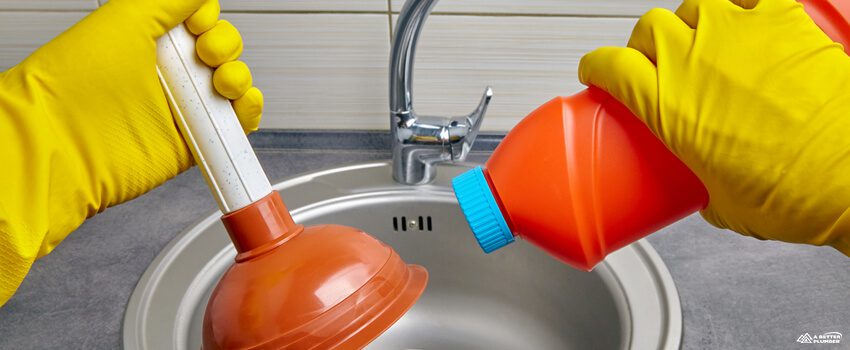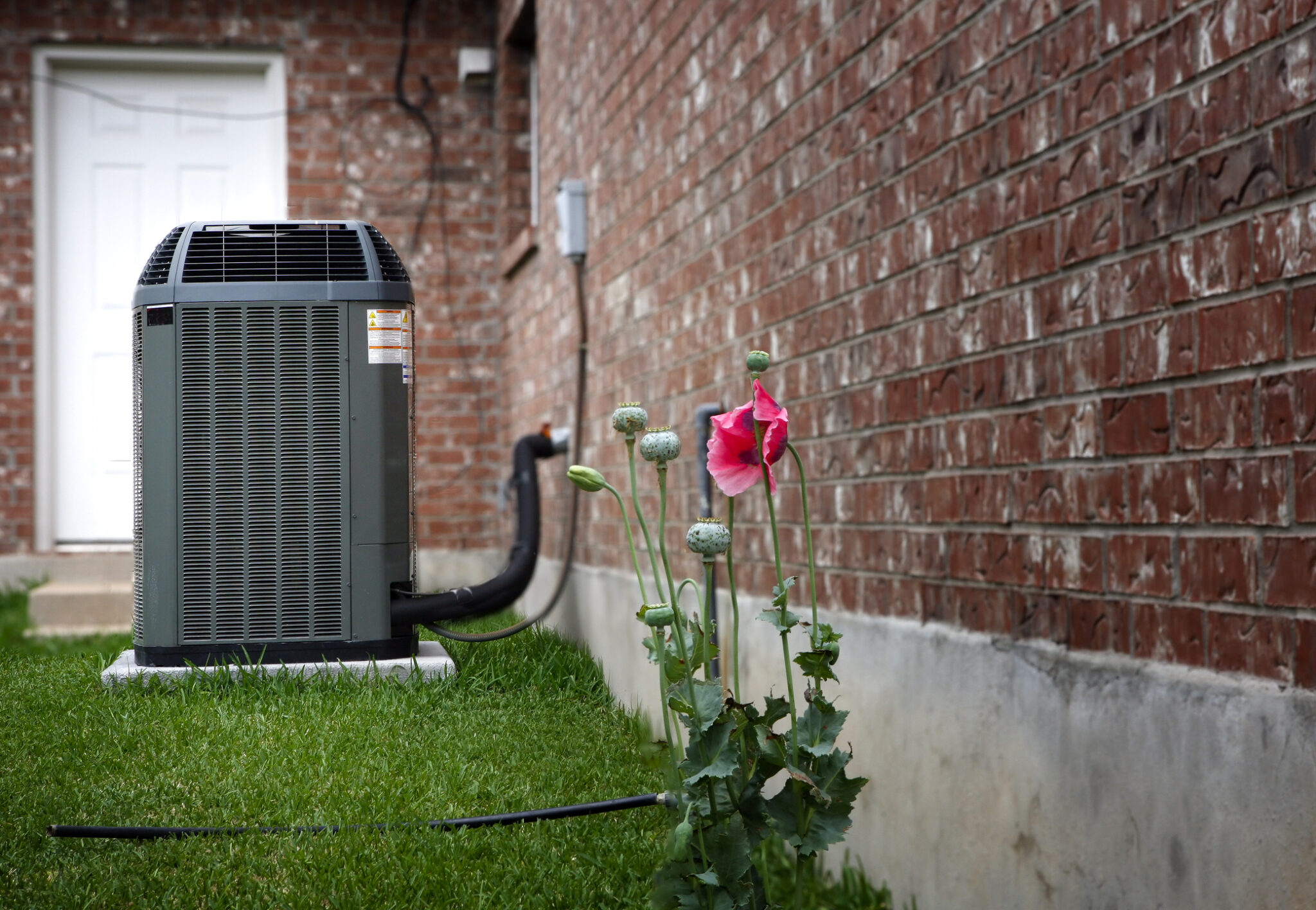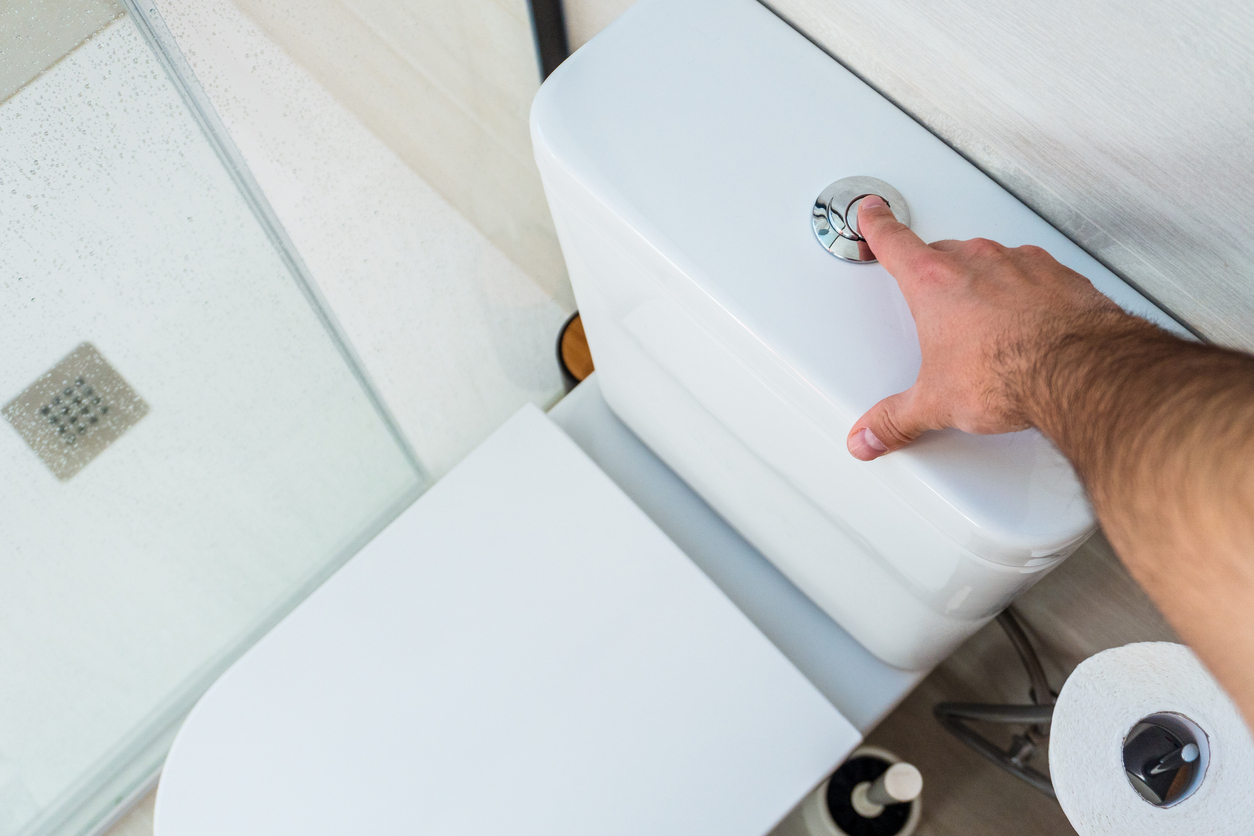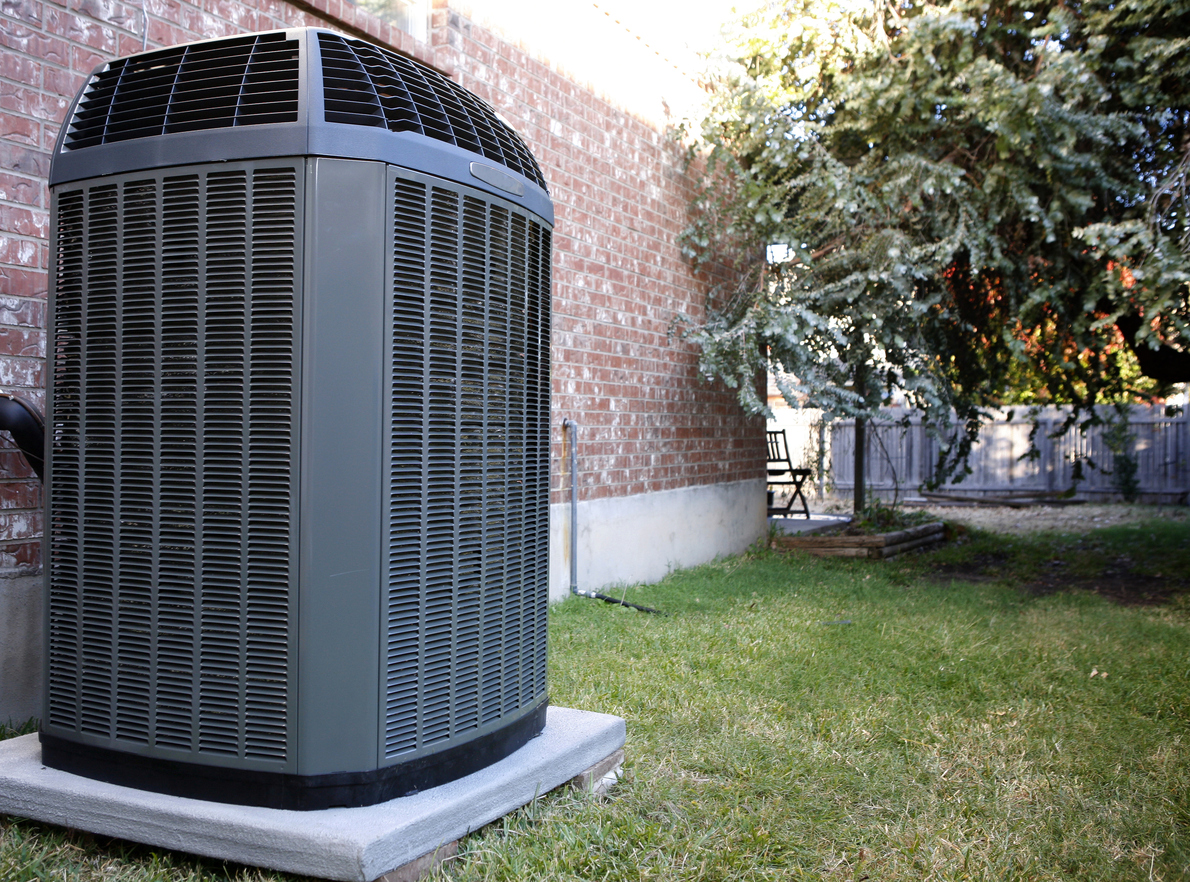Why You Should Not Use a Liquid Drain Cleaner

A liquid drain cleaner refers to a chemical product formulated to help clear blocked sewer pipes and clogged drains. Although many of these products come in liquid form, some are available as solid cleaners. A few, primarily the acidic varieties, can only be purchased by a licensed plumber.
Liquid Drain Cleaners and Plumbing Pipes
Despite claims by manufacturers that drain cleaners are effective, the risks far outweigh the benefits. Since they are prepared using a mixture of different chemicals, these cleaners can be corrosive and cause severe damage to your pipes.
Additionally, the chemicals involved are not entirely safe as they can expose you to various health risks. This becomes especially true when the liquid drain opener is not handled properly or was not used based on the instructions.
Common Ingredients of Liquid Drain Cleaners
Many companies won’t give their exact formula or even the chemical additives that go into the production of their liquid drain cleaners. Nevertheless, if you’ve seen the labels of many cleaning products, you can easily deduce that the ingredients listed there are not exactly harmless.
The following are the most common chemicals found in many liquid drain cleaners:
1. Sulfuric Acid
Sulfuric acid is the most commonly used drain cleaner chemical. It’s a byproduct of the iron ore purification process and is highly toxic.
Sulfuric acid is known for its strong dissolving power, especially with organic materials like hair, grease, leaves, and other debris. However, it’s also corrosive and can cause damage to iron, stainless, and galvanized pipes. If not handled properly, this drain cleaning liquid chemical can severely burn the skin and the eyes.
2. Hydrochloric Acid
Commonly known as muriatic acid, this is another common ingredient in many liquid drain cleaners. Hydrochloric acid can corrode metal pipes, just like sulfuric acid, and can produce the same effect with pipes made from porcelain.
3. Sodium Hypochloride
The most commonly used drain cleaner additive, sodium hypochloride, is usually mixed with sodium hydroxide (also known as caustic soda and chlorine). More popularly known as bleach, sodium hypochloride contains thickening properties that enable it to sink in standing waters. It’s a fairly safe drain cleaner and effective in removing hair stuck in showers and bathrooms, but not grease that has clogged the kitchen sink drain.
Still, sodium hypochloride should be used only as a drain cleaner when there are no other options available as you might eventually find that bleach can cause more damage than good. Sodium hypochloride is just like other chemicals that make up many drain cleaners in that it can be harsh on pipes.
4. Sodium Hydroxide
Sodium hydroxide can corrode pipes made from galvanized steel, copper and iron, as well as fixtures and fittings. When included as an ingredient in a drain pipe cleaner, the chemical releases heat which softens and deforms plastic pipes. When used to clear a blocked drain, sodium hydroxide will get trapped inside where it can cause serious damage.
5. Aluminum
Aluminum granules found in liquid drain cleaners are known to emit hydrogen gas due to an exothermic reaction. Heat is generated as a consequence which helps to dissolve oils and greases.
Reasons Not to Use Liquid Drain Cleaners
Consider the following as to why you should not use a harsh chemical liquid to unclog a drain:
1. Liquid drainers will only damage your pipes.
Avoid using a chemical drain cleaner to prolong the life of your plumbing system.The pipes will corrode over time as the abrasive chemicals build up inside them, even when these are unable to remove a clog.
2. Liquid drain cleaners are ineffective.
Many drain cleaners are being promoted as highly effective, but this is not always true. Although they can sometimes work, the solution they provide is usually temporary. In a few weeks or so, another plumbing problem will appear.
3. Liquid drain cleaners release unhealthy fumes.
Before you grab a drain cleaner chemical bottle, consider the potential health risks that it can bring home for you. Drain cleaning products release toxic fumes as soon as the cap is removed from the bottle. These cleaners, and many other similar household products, should only be used in well ventilated areas. If you really have to use them, open at least one window in the kitchen so you’ll be safe.
Some symptoms can occur almost immediately after inhaling the fumes from an open drain cleaner. These fumes are so powerful that they can cause irritation and even serious damage to your eyes. Patients with a chronic respiratory condition such as asthma are likely to experience breathing difficulties upon inhaling them.
4. Liquid drain cleaners can damage your septic tank.
The septic tank in the home is in charge of collecting household waste. If maintained well, it can last for up to 40 years. However, your septic tank could face premature damage if you frequently use chemical drain cleaners.
Also, the good bacteria dwelling in a septic tank usually work on breaking down waste. The use of liquid drain cleaners can cause these bacteria to die. The chemicals of your drain cleaning liquid can also go further down to the ground, eventually contaminating the surrounding soil.
5. Liquid drain cleaners can cause injuries.
Observe extreme caution when using liquid drain cleaners purchased from a nearby grocery store. Many of these cleaners contain high levels of sulfuric acid that can cause skin irritations and even blindness.
According to research, approximately 3,000 people per year are injured by drain cleaners, with many of the victims requiring hospital treatment. Even when care is taken when using these products, accidents can still occur, especially when the acid content of the cleaner reacts with water faster than you would expect.The acid could end up on your skin and cause a serious burn.
6. Liquid drain cleaners are dangerous to children and pets.
Never leave chemical drain cleaners within the reach of children. Their natural curiosity may lead them to examine these products more closely and expose them to danger. Similarly, if curious pets chew through the plastic containers of these cleaners, they are at risk of getting poisoned.
7. Liquid drain cleaners are only temporary fixes.
While these cleaners are good if you want a quick and immediate fix for your plumbing problem, they are unable to address the underlying cause. In short, liquid drain cleaners will not address the root cause of frequent, repeated, and recurring clogs.
8. Liquid drain cleaners are considered environmental hazards.
The chemical liquid to unclog a drain, as found in many drain cleaners, are harmful, not only to individual health, but to the environment as well. After using the contents, the empty bottles of these cleaners also end up in landfills or carelessly thrown into the seas and oceans, ultimately endangering marine life.
Contact Absolute Electrical Heating and Air for a safer way to clean your drains.
There’s always a better way to clean those drains without putting yourself in unnecessary risks. Contact Absolute Electrical Heating and Air so you can find out about this solution.
We have a full range of plumbing services, including safe drain cleaner techniques, and our Aurora plumbing specialist will gladly discuss this with you if you call right away. Call now!
CONTACT US
Request Service


Save Every Year with an Absolute Advantage Membership
Expert Annual System Safety Inspections & More
- Priority service
- Waived dispatch fees
- Yearly furnace, A/C, & electrical system inspections
- 10% discount on repairs and additional diagnostic services
- Up to $500 off HVAC & electrical panel replacements







